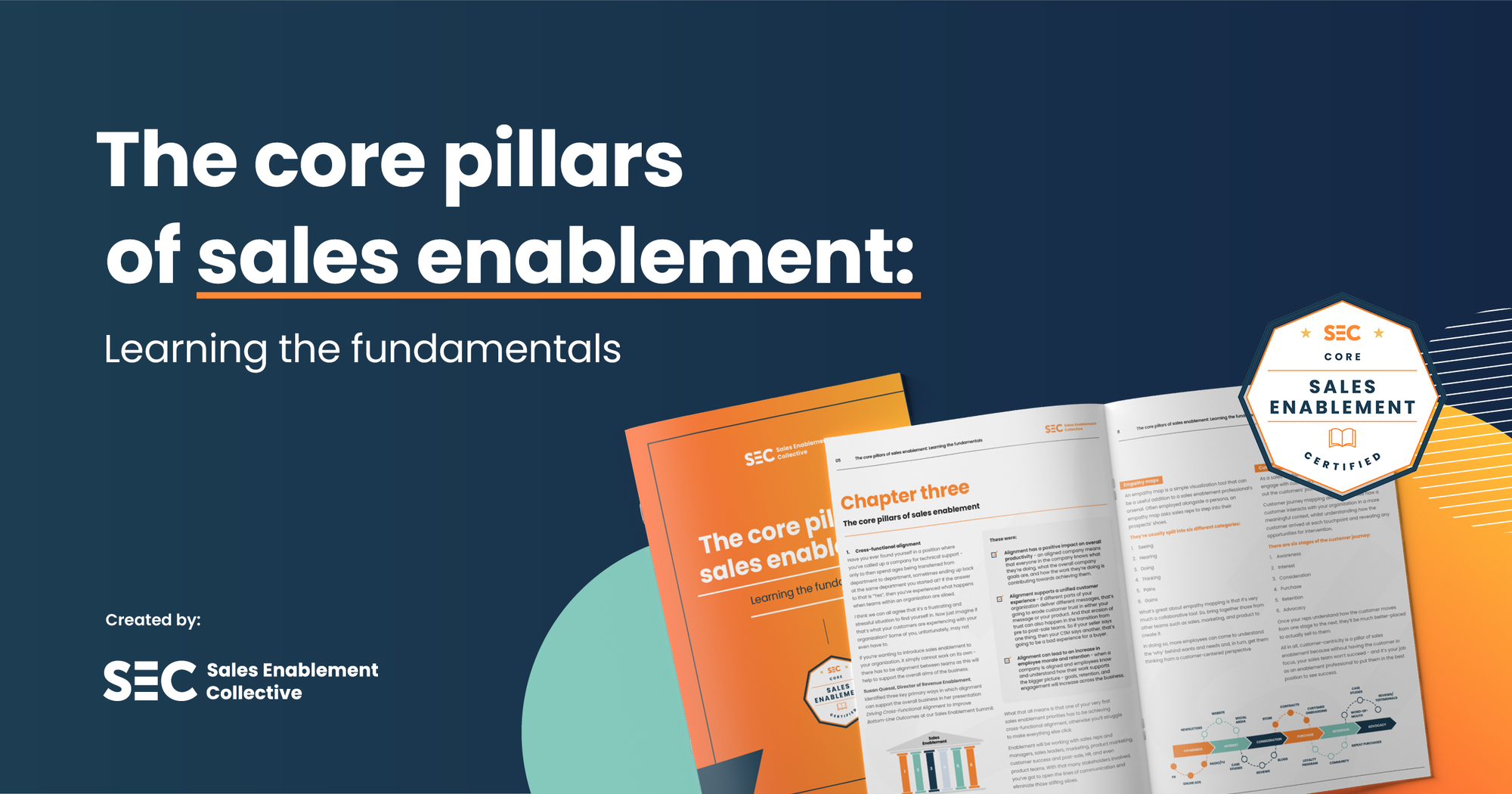Salespeople are a competitive, ambitious bunch, and so personality clashes are perhaps inevitable from time to time. While a little bit of tension and friendly competition can be positive motivators, if relationships and behaviors begin to deteriorate to a point where it becomes unhealthy for the team and impacts on employee wellbeing and performance, it needs to be confronted and addressed.
Managing conflict and having difficult conversations can be one of the most uncomfortable parts of a leader’s job. The good news is that most of these conflicts can be resolved through strong communication - and maybe even avoided in the first place.
While sales enablement wouldn’t need to get directly involved with addressing this kind of conflict between reps, your job is to support sales teams to operate efficiently and overcome barriers - so it’s handy to be aware of the steps line managers need to take.
The clash of the egos: a driver of conflict
CPP’s Global Human Capital Report found that clashing egos was the leading cause of conflict in US offices, at 49% of all recorded workplace conflicts. Stress was the second most common contributor, at 34%, followed by heavy workloads.
In an industry where success relies heavily on reps using their charisma and personal credibility to build up trust with customers, egos can easily be damaged, toes can be stepped on and wires can get crossed. Many problems like this arise when two people get off on the wrong foot because they aren't given the chance to really get to know each other. There’s also a delicate balancing act in sales in how individuals prioritize personal goals (and agendas) with team objectives.
Let’s do a bit of role-play...
Helen vs. Nicola
Helen and Nicola just seem to rub each other up the wrong way. What at first seemed like jovial office banter has escalated into more barbed, even confrontational, exchanges. You, their manager, and others in the office, are beginning to pick up on the negative vibes, which sometimes spill over into meetings, creating a toxic atmosphere, sucking up energy and distracting from productive discussions.

What should you do if you have to manage a situation like this one?
If they notice tension between two reps, the sales manager should focus first on informal, supportive mediation that encourages communication and nips the problem in the bud before relations deteriorate further.
It may be that Helen feels that Nicola is undermining her in front of colleagues, or that Nicola thinks Helen is stepping on her toes and trying to poach her customers. By making reps’ individual responsibilities and accountabilities clear, you can remove any ambiguity and help to avoid conflict before it even begins.
A pragmatic solution could be to arrange for them to work closely together on a project with a shared goal. This may seem counterintuitive, but having reps depend on and invest in each other can create a bond of respect that wasn't there before, and a willingness to accept that it’s in their interests to work together.

Conflict resolution in practice: Tips for having difficult conversions
These tips work for managers who need to deal with awkward situations within the sales team, and there are useful takeaways here for you as a sales enablement manager, too.
- When confronting an issue with someone, open the conversation in a calm, positive, but serious, way. It’s critical to reassure them they’re not being personally attacked. Show that you care about the success of that individual and the team.
- Take care to do it at the right time, in the right place (ie, somewhere private), using the right tone of voice, and the right choice of words - without being rushed, upset or distracted.
- Establish the facts as clearly as possible. Is this an isolated incident, or a pattern of behavior? It’s usually necessary to speak to all parties involved - this should be done separately and without taking sides.
- Make sure you’re familiar with company policy and procedures, and that you draw the rep’s attention to them and why they’re in place. Outline expectations and explain the reasoning behind them. It’s difficult to enforce rules and guidelines if an employee was never aware of them. For example, if someone regularly turns up late, leaving disgruntled colleagues to pick up the slack, it may be appropriate to refer to the company’s attendance policy.
- Focus on the problem, not the person. Often, people don’t fully appreciate how their behaviors are affecting others and it’s important to ensure that they clearly understand this. In the example of frequent lateness, it may be that the individual thinks this is fine as they stay later than the rest of the team, therefore making up the time, but be unaware that more inbound calls take place first thing in the morning and that means that their colleagues are having to answer their phone, which is eating into their selling time.
- Explain the issue, the impact on the team, the move forward to concentrate on plans for improvement (making sure that the guidelines put in place for improvement are practical).
- Seek or offer a solution. Ask “What do you think we could do to improve the situation?” That gives them ownership and encourages commitment to change their behavior. You may have to be direct, saying something like "based on what we've discussed, is this something that you can agree to?". If they say yes, take that at face value; you want to be positive.

Preventing conflict in the first place
Managers should never underestimate the importance of open communication with their team. This means having an open door policy, using active listening to understand what stresses reps out, and never ending a conversation on a negative note. One way of dealing with conflict, especially if it affects the whole team, is acknowledging the conflict and allowing healthy debate. Let opinions be heard, but stress that respect, teamwork, and positive attitudes are expected from all team members. Stress can also lead to reps acting out of character.
Some other strategies include:
- Doing regular health checks on the team to make sure their workload isn't overwhelming them, and that goals are reasonable.
- Giving reps access to the resources they need to do their job easily and efficiently, such as content, tools and training. Set them up to succeed.
- Having clear office rules, which can help keep things respectful and professional. Work with HR to establish guidelines for a polite and respectful office culture so that everyone understands what kind of behavior is expected of them.
- Making a note of the main sources of conflicts that they see within the team and thinking about how they can use communication to lessen that conflict. Using this approach will help resolve the issues that arise in the future.
- Performance reviews are primarily used to evaluate if goals or objectives are being met, but can also be used as an opportunity to identify any underlying concerns.
Fill out the form below to get our ebook on how to master sales methodologies. This ebook covers proven sales methodologies to help you close more deals. It’s the ultimate guide to elevating your sales strategy.

Cases of serious misconduct
If conflict persists or escalates, following initial conversations with the rep - especially if it has the potential to lead to disciplinary action or a formal grievance - this is where HR needs to get involved.
With serious breaches of the company’s policies and procedures, or extreme behaviors such as violence, damage to property, bullying & harassment, or substance abuse, consult with HR as early as possible.
Leading sales and sales enablement means dealing with big personalities - which is usually a good thing as that means big results. Effective salespeople are confident, driven and assertive.
One of the most satisfying parts of sale’s enablement’s job to help make sure these traits are channelled positively.
Craving more content? Wanna get your hands on members-only resources, such as exclusive content (filled with insights from sales enablement leaders at the world’s best-known brands, like Ericsson, Uber, IBM & Atlassian, to name just a few), on-demand video from all of our past and previous events, and an entire library of customizable templates & frameworks?
In short, all the resources a sales enablement practitioner needs, accessible from any place, at any time.
Sign up for SEC membership. What are you waiting for?




